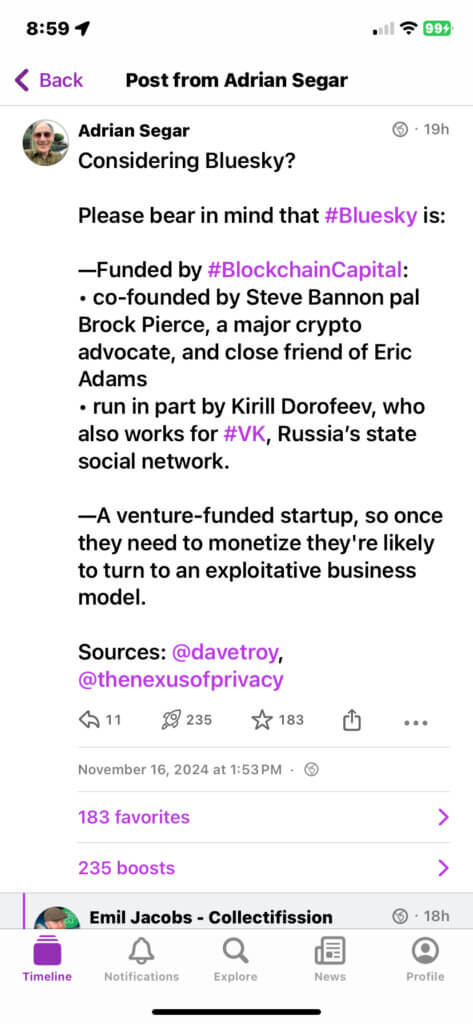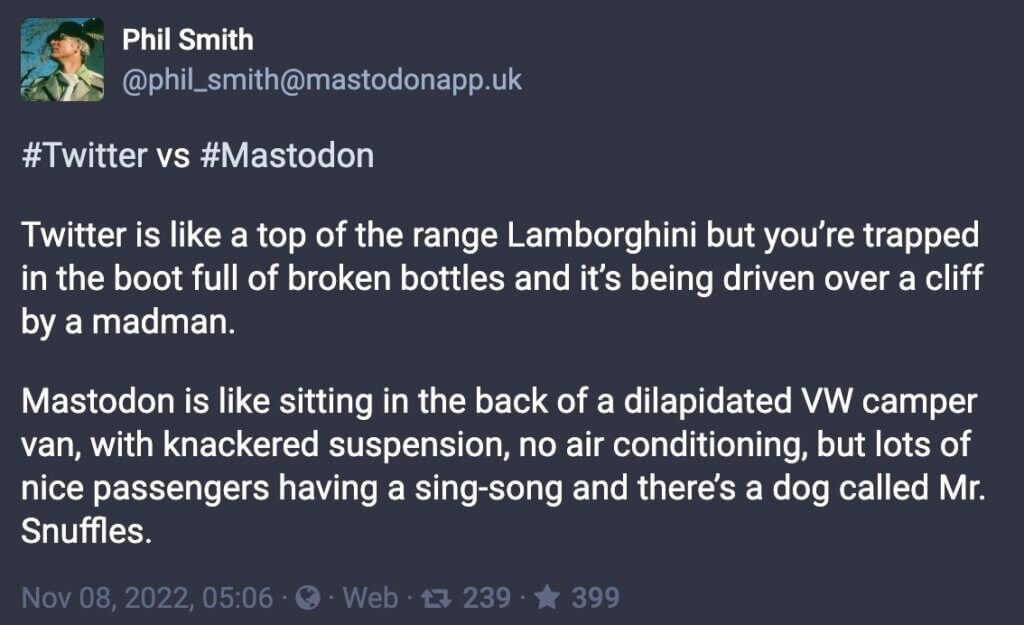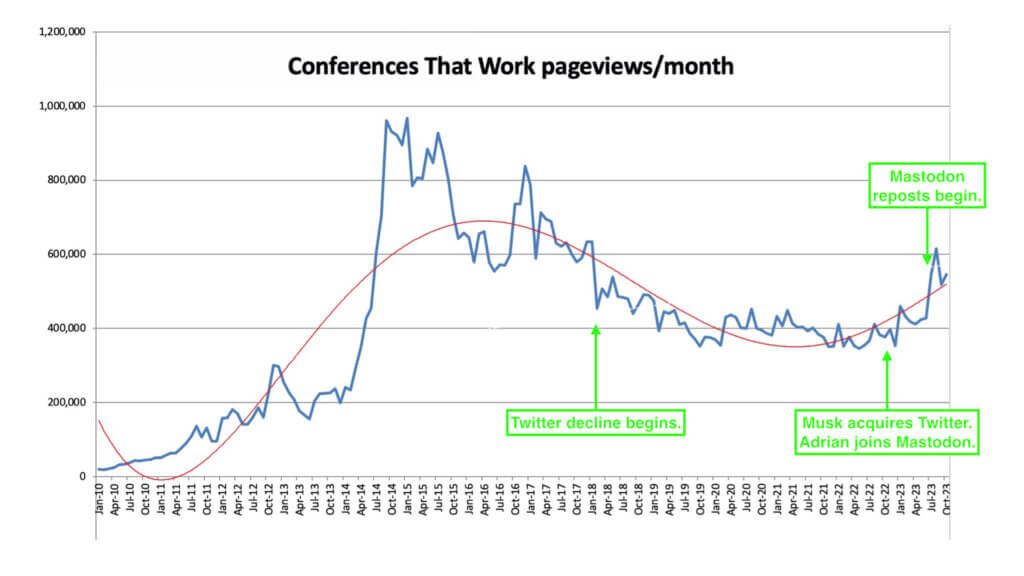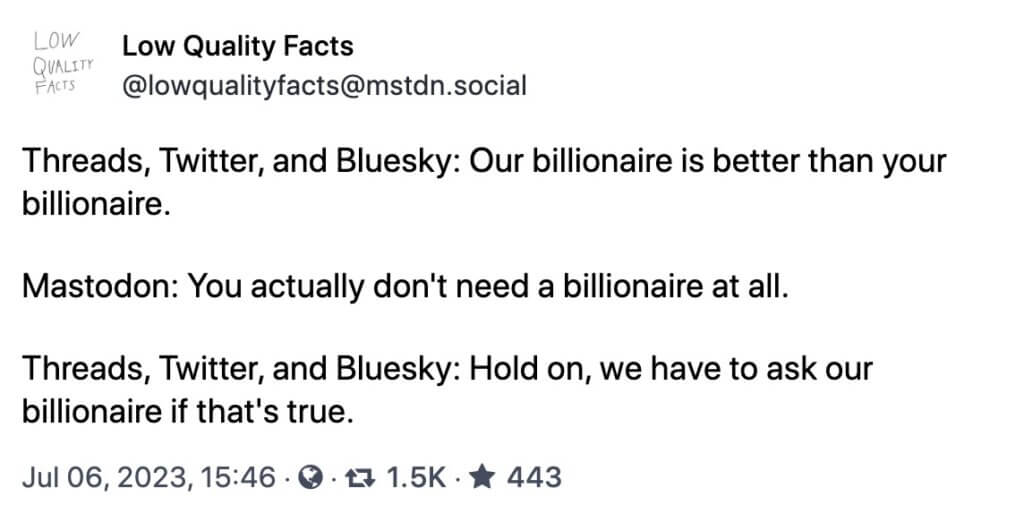Leaving Las Twitter
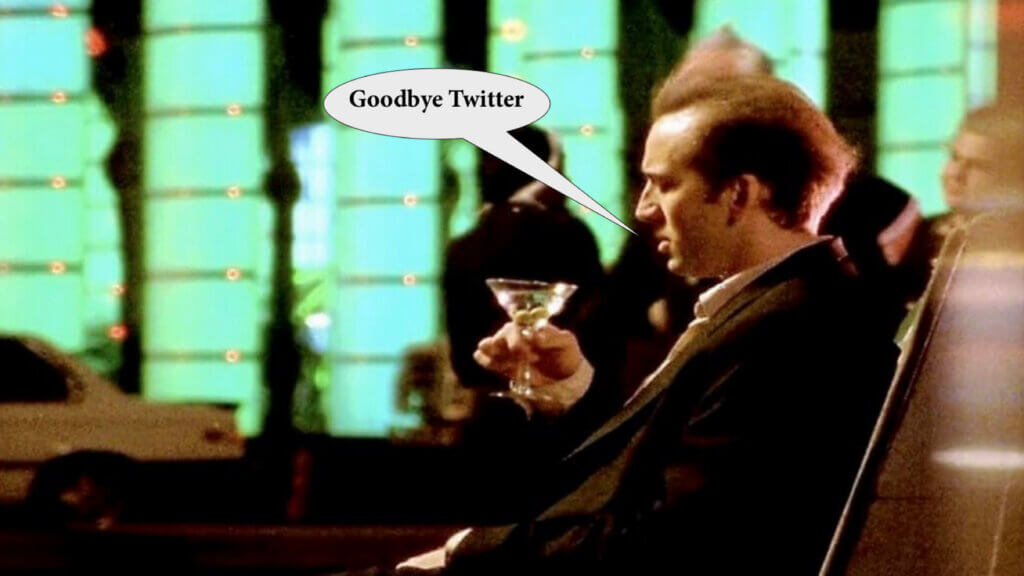
On November 14, 2024, I said goodbye to Twitter
Like hundreds of thousands of users in the weeks following the 2024 U.S. Presidential Election, I decided it was time to leave Twitter. How did someone like me —who thrived on the platform for years, posting over 80,000 tweets and amassing more than 8,000 followers — decide to move on? And where did I go?
Here’s the story.
Twitter: The early days of wonder and delight
I joined Twitter (now “X”) in June 2009. Little did I know that, over the next few years, Twitter would become the most important way for people to discover my work and for me to connect with thousands of kindred spirits worldwide who share my specialized interests. Over time, this website Conferences That Work grew to six million page views in 2023.
Why did this happen? In its early years, Twitter was small and authentic. Tweets were public, fostering organic discovery of fascinating people and communities, often defined by hashtags. Two vibrant communities I called home for years were #eventprofs and #assnchat.
But in 2017, I noticed a change. In retrospect, 2016-2107 marked a transition where late adopters continued to join Twitter. However, a critical mass of active users concluded that engagement on the platform was not for them. They began moving to other social media platforms, like Instagram and, later, TikTok. Twitter became a platform more suited for consuming breaking news and rumors than meaningful interaction.
The Elon Era: From Bad to Worse
Everything changed in October 2022 when Elon Musk took over. Over the next two years, he destroyed what was left of Twitter’s value. He promoted accounts that paid for meaningless “blue check” verification and eliminated content moderation rules. Elon’s evisceration of safety guidelines and enforcement filled the platform with a toxic stew of bigots, anonymous haters, and misinformation bots.
As quality advertisers fled the platform, Twitter’s desperate need for revenue led Musk to allow a barrage of low-quality ads from companies you’ve never heard of. It didn’t help the bottom line.
I stayed for a while, continuing to post evergreen content and links to the weekly blog posts I’ve written since 2009. But as my community began leaving in droves, engagement plummeted, replaced by toxicity and hostility.
The final straws
Several events pushed me to finally leave:
- Elon’s Propaganda: Musk used Twitter to support his public transformation to a vocal 45 supporter, armed with a slew of lies and distortions. This disgusted me and countless other longtime users.
- Blocking Changes: In October 2024, Twitter announced that blocked accounts could still view your posts, making the platform feel even less safe for many.
- The final straw—AI Exploitation: Twitter updated its Terms of Service to state that, as of November 15, 2024, all posts and attached media would be used to train AI models like Grok.
I stopped posting on Twitter on November 14, except for a week of tweets of this post, bidding the platform farewell.
Where did I go?
Most Twitter emigrants are moving to Bluesky, a rival social media platform. While Bluesky is currently a better place to be than Xitter, I have some concerns about its long-term prospects, summarized in this popular post I made on Mastodon:
Considering Bluesky?
Please bear in mind that #Bluesky is:
—Funded by #BlockchainCapital:
• co-founded by Steve Bannon pal Brock Pierce, a major crypto advocate, and close friend of Eric Adams
• run in part by Kirill Dorofeev, who also works for #VK, Russia’s state social network.—A venture-funded startup, so once they need to monetize they’re likely to turn to an exploitative business model.
Sources: @davetroy, @thenexusofprivacy
Nov 16, 2024, at 01:53 PM
183 favorites
235 boosts
Science fiction author, activist, and journalist Cory Doctorow also aptly warns about Bluesky in his post Bluesky and enshittification: “[I will] never again devote my energies to building up an audience on a platform whose management can sever my relationship to that audience at will.”
Currently, there are only two major social media platforms that aren’t owned by billionaires tech giants: Mastodon and the quaintly charming CounterSocial (here’s an old review of CounterSocial).
Why Mastodon?
I joined Mastodon in November 2022 and have never looked back. Though I have only 400+ followers, Mastodon reminds me of what Twitter used to be. Mastodon is a supportive community that values thoughtful posts. I get far more engagement and exposure there than I did on Twitter. Since I started posting my content on Mastodon, visits to this website have jumped 20%. You can find me there at [email protected].
[Full disclosure: you can also still find me, albeit reluctantly, on LinkedIn for professional networking reasons, plus, even more reluctantly, on Facebook for some local groups and staying in touch with a few friends who aren’t on anything else.]
Goodbye Twitter
Twitter was a transformative platform during its heyday, and I’m grateful for the connections and opportunities it brought me. But it’s no longer the place it once was.
Goodbye, Twitter. We had fun while it lasted—until a billionaire ruined it.
I’m leaving Las Twitter.

